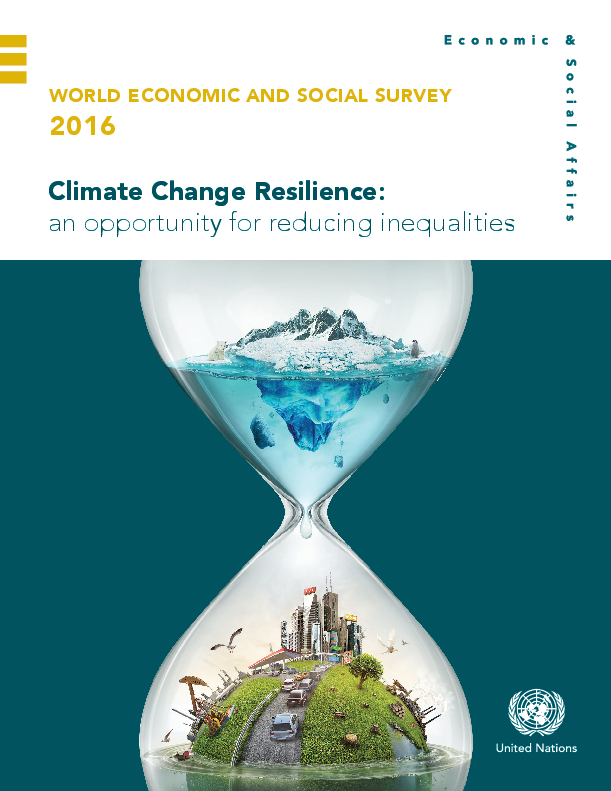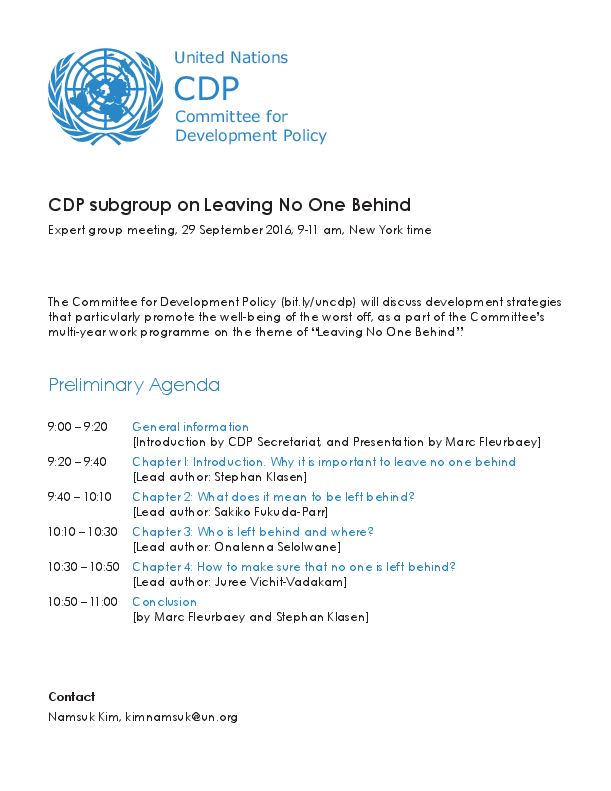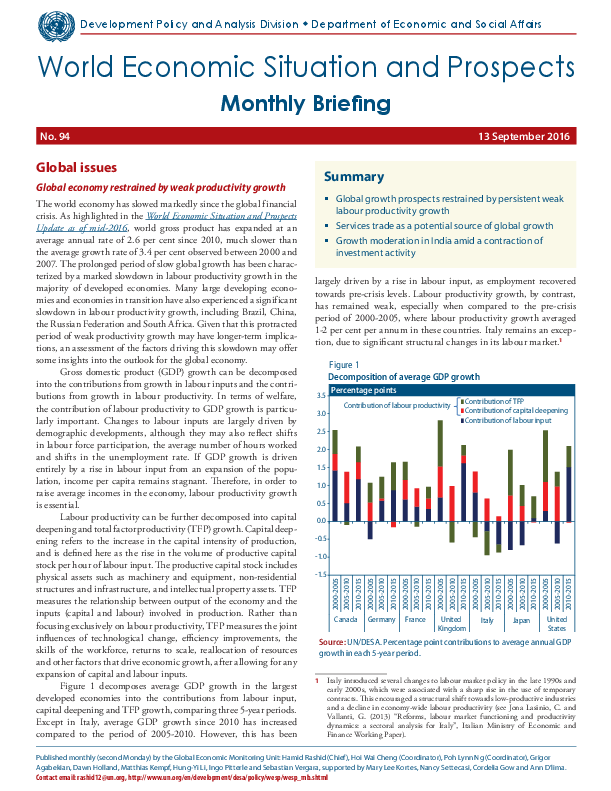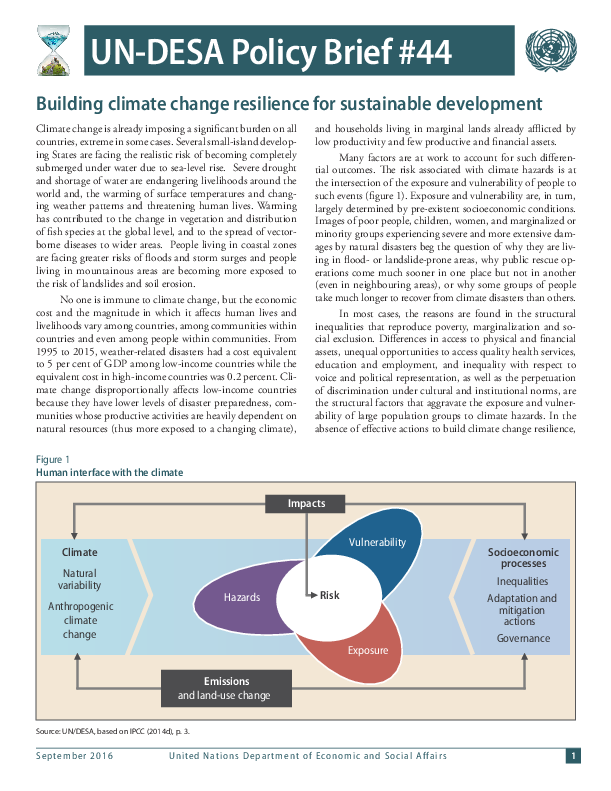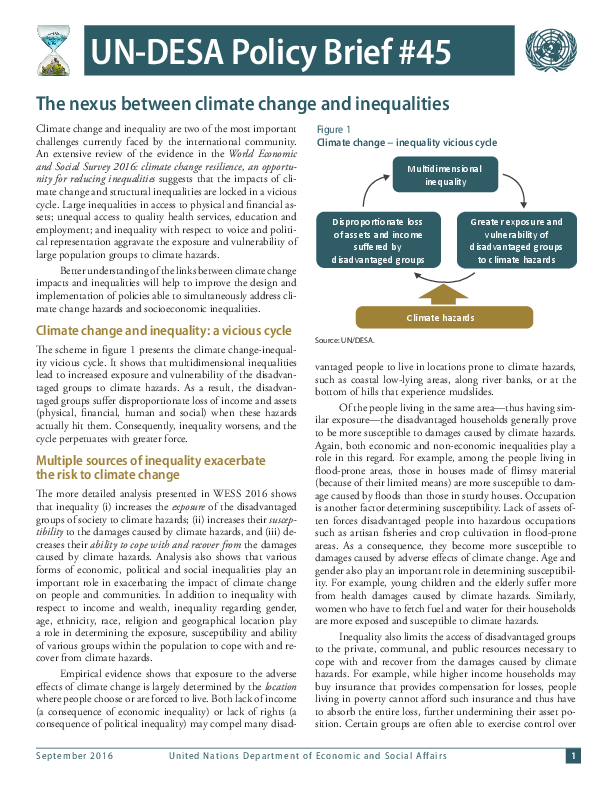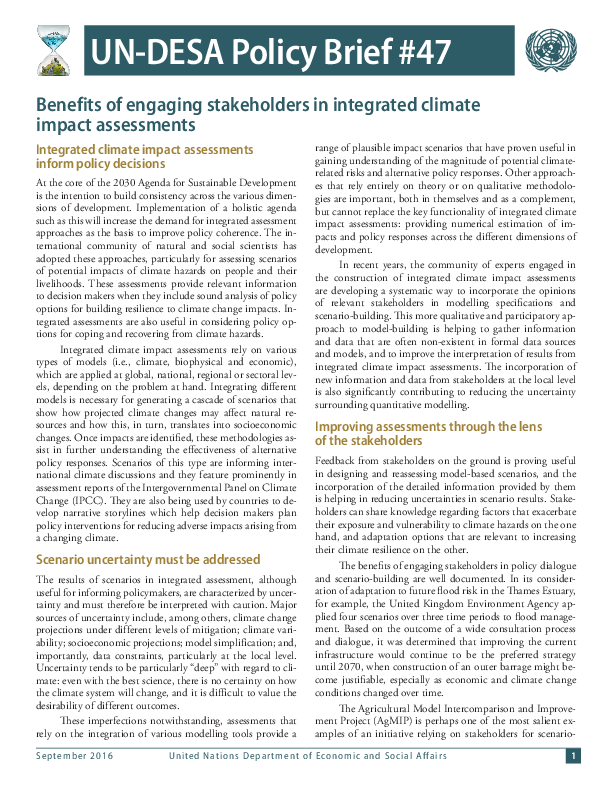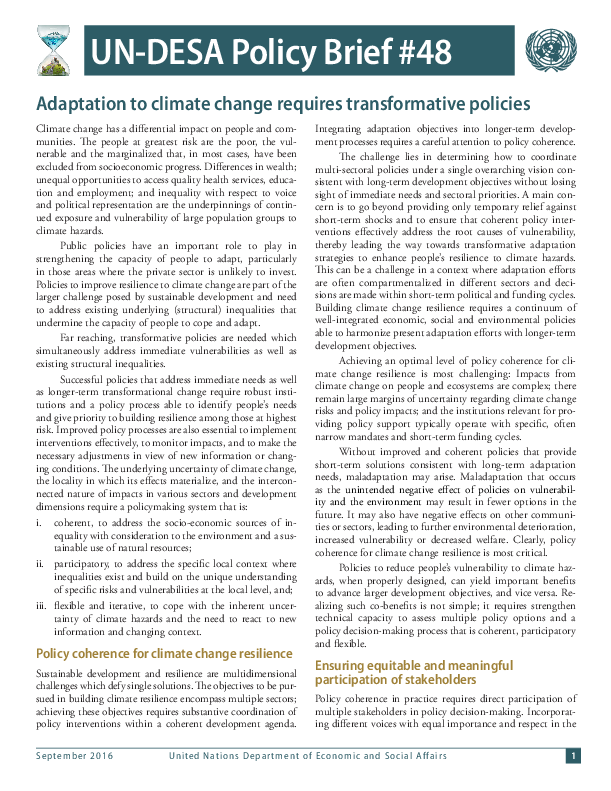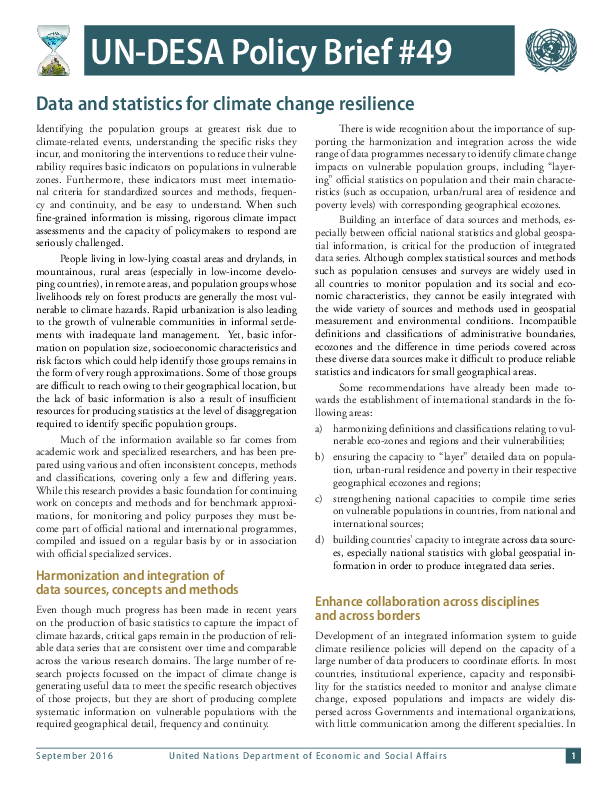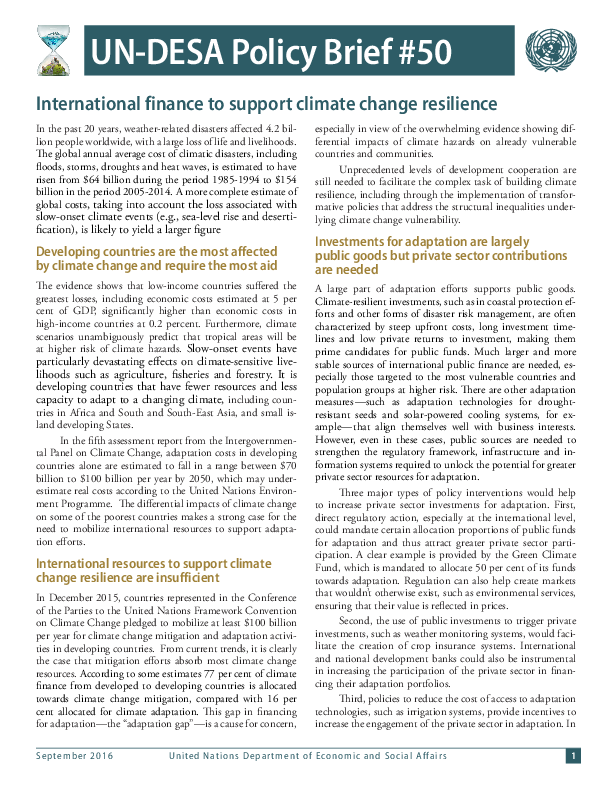Publications
Displaying 471 - 480 of 1087
Services trade as a potential source of global growth
Growth moderation in India amid a contraction of investment activity World Economic Situation And Prospects: September 2016 Briefing, No. 94
The intensity and frequency of climate hazards have increased with climate change, imposing large costs on societies. Building resilience to withstand climate h UN/DESA Policy Brief #46: Integrating methodologies to support the assessment of options for climate change resilience
UN/DESA Policy Brief #47: Benefits of engaging stakeholders in integrated climate impact assessments
At the core of the 2030 Agenda for Sustainable Development is the intention to build consistency across the various dimensions of development. Implementation of a holistic agenda UN/DESA Policy Brief #47: Benefits of engaging stakeholders in integrated climate impact assessments
 Welcome to the United Nations
Welcome to the United Nations
